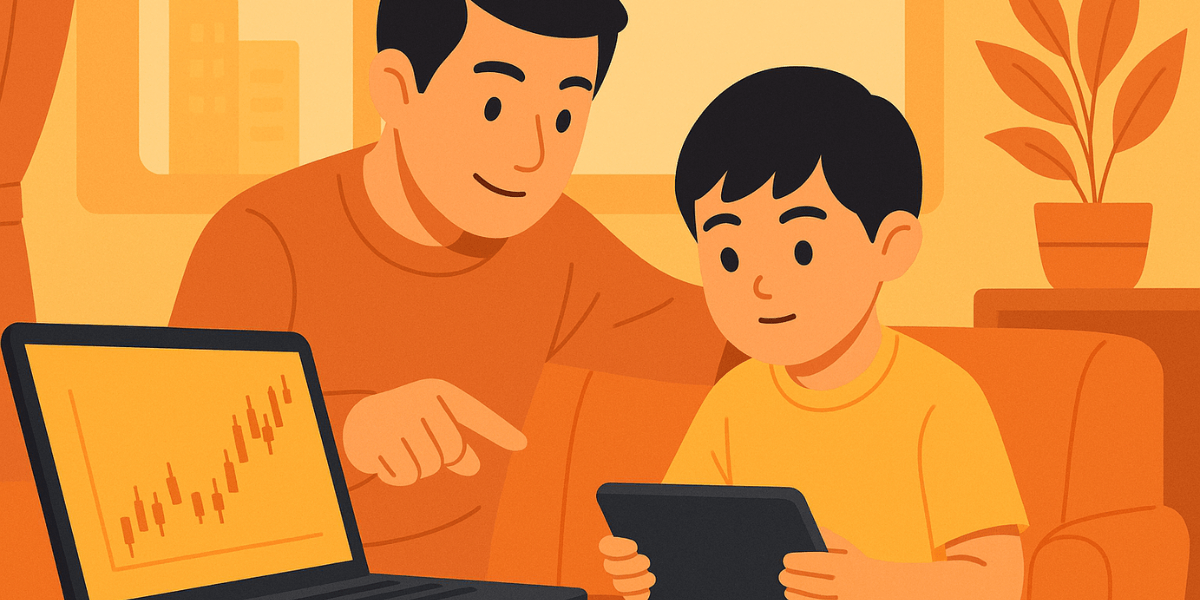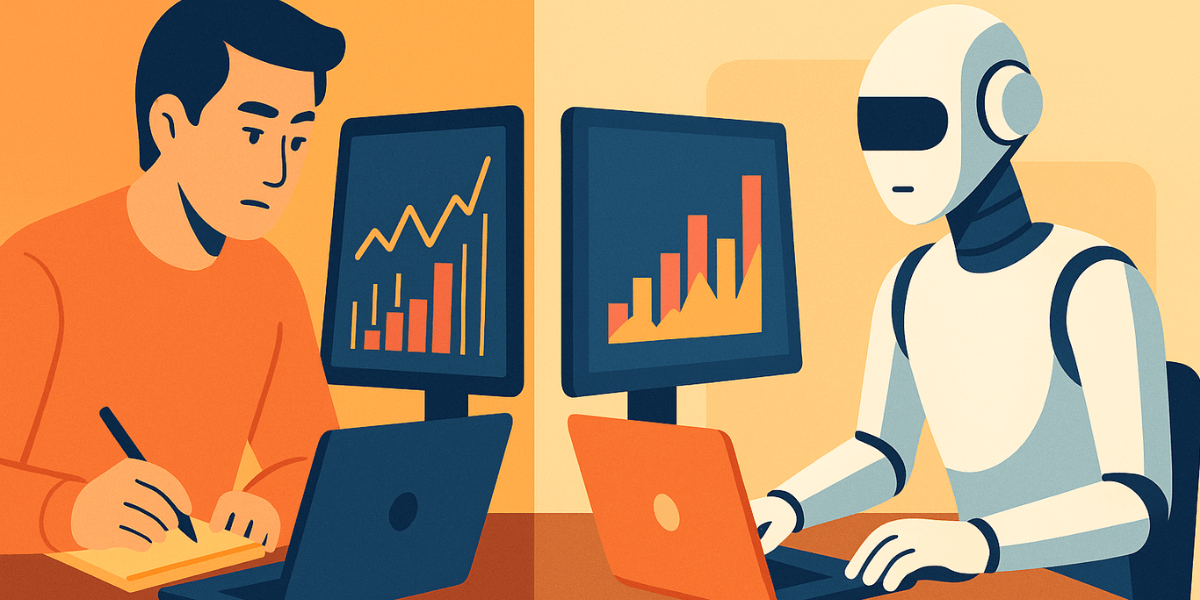Forex trading is often portrayed as the gateway to financial freedom. In this profession, disciplined individuals can earn money from anywhere in the world, unbound by traditional work hours or locations. The image is seductive: a trader with a laptop on a tropical beach, charts glowing under the palm trees, living on their own terms. But beneath that romanticized image lies a more complex truth. The life of a Forex trader can come with a range of hidden costs — financial, emotional, social, and psychological — that few people recognize until they experience them firsthand.
These hidden lifestyle costs do not appear on any balance sheet, but they shape the long-term sustainability of a trader’s career. They include the pressures of financial uncertainty, the constant emotional rollercoaster of wins and losses, the impact on relationships, and the physical toll of a sedentary, screen-intensive lifestyle. Understanding them is essential not only for aspiring traders but also for experienced professionals seeking a balance between profit and well-being.
This article explores, in depth, the real price of pursuing a trading lifestyle — beyond spreads, commissions, and leverage. It aims to reveal what truly happens when financial independence collides with human limitation, and how successful traders learn to manage both markets and themselves.
From social media influencers to trading advertisements, Forex trading is often marketed as the modern equivalent of freedom. The message is clear: quit your job, trade from home, and live on your own schedule. And while the financial markets do provide opportunities for autonomy, the emotional and psychological costs are rarely part of that conversation.
True independence comes not from the ability to trade anywhere, but from the ability to remain mentally resilient under pressure. The average trader doesn’t fail because of a lack of strategy, but because of a lack of preparedness for the emotional and lifestyle consequences of trading. These include long hours of screen time, fluctuating income, social isolation, and the constant cognitive strain of analyzing uncertain outcomes.
To trade well, one must not only master market dynamics but also learn how to protect one’s mental capital — the most valuable and least renewable resource in trading.
Financial Uncertainty and the Invisible Cost of Freedom
Most traders are attracted to Forex because it offers the potential for income without bosses, schedules, or ceilings. However, that freedom comes with its opposite — instability. Unlike a traditional job with predictable paychecks, trading income is inherently variable. You can make a month’s salary in a single trade or lose it in an afternoon.
This unpredictability affects not only finances but also how traders plan their lives. Vacations, family expenses, mortgage payments, and even daily routines become tied to performance cycles. A losing streak can disrupt confidence, delay goals, and force difficult decisions like withdrawing savings or scaling back living expenses.
Even professional traders with years of experience face this. Consistency is elusive in markets governed by external forces like central banks, economic data, and geopolitical shifts. Thus, financial uncertainty becomes an ongoing psychological tax — one that can cause stress, insomnia, and even burnout.
Emotional Volatility: The Psychological Cost of Constant Decision-Making
Every trade is a decision, and every decision carries emotional weight. In Forex, where leverage magnifies both gains and losses, this emotional intensity is amplified. Traders must continually balance fear and greed — two forces that drive most market behavior and, if left unchecked, can destroy accounts and confidence alike.
The emotional volatility of trading doesn’t come only from losing. Paradoxically, winning can be just as destabilizing. After a big win, overconfidence often leads to larger positions and riskier trades, creating cycles of euphoria and regret. The constant switching between analysis, reaction, and recovery wears down emotional resilience over time.
Professional traders manage this by developing emotional discipline systems — routines that separate decision-making from emotional impulses. Meditation, journaling, and predefined trading rules are not luxuries but survival tools in a field where psychology can make or break performance.
The Social Isolation of the Trading Lifestyle
Trading can be lonely. Unlike other professions where teamwork, mentorship, and office culture provide structure, Forex trading is often a solitary pursuit. Many traders spend 8 to 12 hours a day in front of screens, with minimal real-world interaction. Over time, this isolation can erode social skills, relationships, and even self-identity.
Friends and family may not understand what traders do, especially when their income fluctuates or when stress levels rise after losses. Without a supportive network, traders can develop feelings of detachment or even mild depression — conditions worsened by the constant mental load of monitoring charts, economic data, and positions.
Building community is essential. Online trading forums, mentorship programs, or local trader meetups can help offset this isolation. Even small acts like scheduling regular social time can protect mental health and remind traders that life exists outside the market.
Physical Health and the Sedentary Trap
Trading demands attention — hours spent sitting, analyzing, and reacting to data. Over time, this lifestyle creates physical strain. Long sedentary hours can lead to poor posture, back pain, vision problems, and cardiovascular risks. The cognitive exhaustion from constant analysis often discourages exercise or healthy eating, creating a feedback loop that further reduces energy and focus.
Sleep is another casualty. Many Forex markets operate 24 hours a day, encouraging traders to stay up late for specific sessions — particularly the overlap between London and New York. Over time, this irregular sleep pattern disrupts circadian rhythms, reduces cognitive sharpness, and increases stress hormone production.
Successful traders eventually realize that physical health is performance capital. Regular exercise, balanced nutrition, and disciplined rest routines aren’t just lifestyle choices — they are strategic advantages. A trader’s brain is their most valuable asset, and protecting it requires as much effort as analyzing charts.
The Cost of Cognitive Overload
Forex trading is a continuous battle for focus. Charts move in real-time, data changes by the second, and algorithms react faster than human thought. For discretionary traders, the sheer amount of information can be overwhelming. Economic calendars, price feeds, sentiment data, and news releases all compete for attention, creating cognitive fatigue.
Constant exposure to uncertainty activates the brain’s stress responses, releasing cortisol and adrenaline. While these hormones help in short bursts, prolonged exposure leads to exhaustion and poor decision-making. Traders start “revenge trading” after losses or second-guessing after missed opportunities — classic signs of mental fatigue.
To combat this, professionals use structured systems: fixed trading hours, automated alerts, or journaling tools that simplify decision-making. The goal is not to eliminate information but to process it efficiently without draining mental resources.
Relationship Strain and the Price of Focus
Trading success often demands focus so intense that it excludes everything else. But this focus comes at a cost. Partners and family members may feel neglected, particularly during volatile market periods when traders are glued to screens. Conversations shift from life to charts, from relationships to returns.
Moreover, the emotional ups and downs of trading can spill into personal life. A bad day in the market can lead to irritability, detachment, or anxiety at home. Conversely, a string of wins may create unrealistic confidence, affecting communication and balance within relationships.
The key is communication and boundaries. Successful traders make conscious efforts to separate market time from personal time. They treat relationships as investments that require attention and emotional capital — not as distractions from trading performance.
Opportunity Cost: What Traders Give Up
Every profession requires sacrifice, but trading demands a unique kind. The opportunity cost of being a trader isn’t just financial — it’s experiential. While peers may advance in traditional careers, accumulate benefits, and build professional networks, traders often operate outside those systems.
This can lead to feelings of alienation or anxiety about the future. Retirement plans, health insurance, and career progression — things taken for granted in other fields — must be self-managed in trading. Many traders underestimate this at first, only to realize years later that financial independence requires not just skill but long-term planning and structure.
However, for those who adapt, trading offers unparalleled autonomy. The key lies in creating frameworks for security — savings plans, insurance, and diversification — that reduce dependency on short-term results.
Emotional Recovery and the Cost of Resilience
Perhaps the greatest hidden cost of trading is emotional recovery. Every trader experiences drawdowns, both financial and psychological. Losses challenge not only strategies but self-esteem. Recovering from them requires emotional strength, patience, and often, time away from the screen.
The best traders treat resilience as a muscle — one that grows through stress, but only if properly recovered. They build support systems, maintain hobbies, and seek mentorship to stay grounded. In contrast, those who push through fatigue and frustration without pause often burn out, regardless of skill or capital.
Building Balance: Practical Strategies for Sustainable Trading
Managing these hidden costs doesn’t mean abandoning trading — it means designing a sustainable lifestyle around it. Successful traders think like athletes: they structure their routines, manage their energy, and respect recovery as much as performance.
- Time management: Set fixed trading hours and avoid markets outside those periods.
- Health prioritization: Exercise regularly and take breaks every hour to prevent fatigue.
- Social connection: Stay engaged with communities outside trading to maintain perspective.
- Financial planning: Treat trading as a business — maintain emergency funds, savings, and risk management policies.
- Emotional regulation: Develop mindfulness practices to handle pressure and losses effectively.
Trading doesn’t destroy balance — imbalance does. Recognizing that trading is both a mental and emotional performance discipline helps traders sustain success long after the excitement fades.
Conclusion
The hidden lifestyle costs of being a Forex trader reach far beyond what most people expect when they first enter the markets. They extend into the deepest parts of daily life — affecting mindset, health, relationships, and personal identity. For all the talk about profits and financial freedom, the real story of trading is one of constant psychological balance, self-discipline, and endurance. It is a career that can bring both extraordinary satisfaction and profound exhaustion, depending entirely on how a trader structures their life around the markets.
At first glance, trading appears to be about freedom: the ability to earn money independently, without a boss, and from anywhere in the world. Yet what most traders discover is that freedom without discipline quickly becomes chaos. The emotional swings of trading, the irregular income, and the endless need to stay informed can gradually consume a person’s peace of mind. The lifestyle begins to dictate the trader, not the other way around. This is why so many professionals emphasize that trading is a performance discipline — one that requires physical fitness, mental clarity, and emotional regulation as much as analytical skill.
One of the most underestimated costs is the erosion of boundaries. Because markets operate nearly 24 hours a day, traders often struggle to disconnect. There is always another chart to analyze, another news event to watch, or another opportunity to seize. Over time, this constant state of alertness blurs the line between work and rest. The result is chronic fatigue — not the kind cured by sleep, but the kind that comes from never truly switching off. In the long run, this mental wear reduces decision quality and creates a subtle but steady decline in confidence and motivation.
Another hidden cost is identity distortion. Trading changes how individuals perceive success and failure. A person’s self-worth can become tied to daily performance — a dangerous trap, since even skilled traders experience losing streaks. A few bad weeks can make someone question their competence or value, creating anxiety that extends beyond the trading desk. This emotional volatility often affects relationships, social engagement, and self-esteem. Learning to separate personal worth from market outcomes is one of the most critical psychological milestones in a trader’s evolution.
Social isolation also plays a heavy role. While digital communities have made trading more accessible, they can’t replace real human connection. Traders often find themselves discussing markets far more than life, drifting into a bubble where conversations, goals, and even friendships revolve around performance metrics. Over time, this isolation can foster emotional detachment and loneliness — particularly when others around them cannot fully understand the pressures of the trading world. The irony is that a career promising independence can make people feel more confined than ever, trapped inside their own pursuit of control.
Physical health, too, becomes a reflection of discipline or neglect. Hours spent sitting in front of screens, eating irregularly, and sleeping poorly add up. Many traders ignore their body’s warning signs, rationalizing unhealthy routines as temporary sacrifices for success. But those habits often outlast the early stages of learning. A body under constant stress eventually weakens the mind, impairing focus and decision-making — the very abilities traders depend on most. In this way, the market rewards not just intellect, but holistic discipline. Traders who prioritize exercise, hydration, posture, and sleep often find that their performance improves, not because they learn new strategies, but because their body and brain finally work together efficiently.
Financially, the unpredictability of trading income requires a rare blend of adaptability and foresight. Every month may tell a different story: profits one week, losses the next. This unpredictability shapes a trader’s sense of security and long-term planning. Those who thrive are not necessarily the best analysts, but the best managers of uncertainty — people who build structures around their freedom. They create emergency funds, diversify income streams, and treat their trading account like a business rather than a lottery ticket. In doing so, they convert volatility from a threat into a manageable element of life.
Frequently Asked Questions
What are the biggest hidden costs of being a Forex trader?
Emotional stress, inconsistent income, social isolation, and the physical strain of long hours are some of the most significant hidden lifestyle costs traders face.
Can trading lead to burnout?
Yes. The constant pressure, long hours, and emotional volatility of trading can lead to burnout if traders do not practice proper balance, rest, and self-care.
How can traders manage stress effectively?
Through mindfulness, structured routines, regular exercise, and limiting screen time. Emotional awareness and healthy detachment are essential for longevity.
Is it possible to maintain a healthy social life as a trader?
Yes, but it requires conscious effort. Scheduling regular time for relationships and activities outside trading helps maintain emotional stability and perspective.
Why do many traders fail despite good strategies?
Because they underestimate the psychological and lifestyle challenges of trading — success in Forex depends as much on emotional control as on technical skill.
Note: Any opinions expressed in this article are not to be considered investment advice and are solely those of the authors. Singapore Forex Club is not responsible for any financial decisions based on this article's contents. Readers may use this data for information and educational purposes only.







